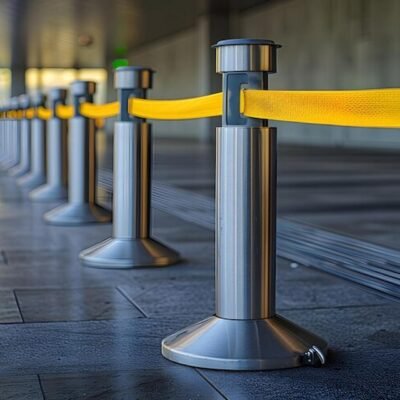Water pipe installation is critical to building infrastructure, ensuring reliable water supply and efficient distribution. The installation process is crucial in ensuring the plumbing system’s longevity, functionality, and cost-effectiveness, whether for residential, commercial, or industrial purposes. This article explores the best practices contributing to efficient water pipe installation, highlighting key considerations and methods that enhance durability and performance.
Efficient Water Pipe Installation
Efficient water pipe installation involves careful planning, precise execution, and adherence to industry standards. The process begins with a comprehensive assessment of the site and its specific requirements. Water demand, building layout, and environmental conditions influence pipe material, diameter, and routing decisions.
Choosing the Right Pipe Material
Selecting suitable pipe material is paramount to the longevity and efficiency of the plumbing system. Common materials include copper, PVC, and PEX, each offering unique durability, corrosion resistance, and cost-effectiveness advantages. Factors such as water quality and soil conditions should guide the choice of material to prevent issues like corrosion or degradation over time.
Preparation and Site Considerations
Proper site preparation is crucial for seamless pipe installation. Clearing obstructions, ensuring adequate trenching, or utilising modern techniques like moling services can minimise disruption to the landscape and reduce installation time. These services, for instance, involve minimal excavation and are ideal for urban environments where preserving aesthetics and reducing environmental impact are priorities.
Precision in Installation
Precision during installation ensures the integrity of the plumbing system. This includes accurate measurement, secure joint assembly, and proper pipe alignment. Pressure testing verifies the system’s integrity and detects any leaks or weaknesses before finalising the installation. Attention to detail at this stage prevents future maintenance issues and optimises water flow efficiency.
Inspection and Compliance
Post-installation inspection and compliance with local regulations are crucial steps. Inspections ensure the installation meets safety and performance standards, safeguarding against potential hazards and legal complications. Compliance with regulations also guarantees the system’s longevity, protecting against fines and penalties associated with non-compliance.
Maintenance and Long-Term Sustainability
Regular maintenance is essential for preserving the efficiency of the water pipe installation. Inspecting for leaks, monitoring water pressure, and addressing potential issues promptly prolong the system’s lifespan and reduce water wastage. Educating property owners on proper usage and maintenance practices promotes sustainability and cost-efficiency in the long run.
Environmental Considerations
Environmental factors, in addition to technical considerations, are crucial in efficient water pipe installation. Sustainable practices such as using recycled materials or opting for eco-friendly pipe coatings contribute to reducing the ecological footprint of plumbing projects. Minimising excavation through techniques like moling services conserves natural resources, preserves the integrity of surrounding landscapes, and reduces disruption to communities.
Cost-Effectiveness and Return on Investment
Efficient water pipe installation is about immediate functionality and long-term cost-effectiveness. Investing in high-quality materials and professional installation services may initially incur higher costs, but they yield significant savings over time through reduced maintenance and lower water consumption. Properly installed pipes contribute to the overall value of properties, ensuring a higher return on investment for homeowners and businesses alike.
Technological Advancements
Technological advancements revolutionise water pipe installation practices. Innovations like trenchless technology, robotic pipe inspection, and intelligent pipe systems enhance efficiency, accuracy, and reliability. These technologies streamline installation processes and enable proactive monitoring and maintenance, optimising system performance and longevity.
Community Impact and Safety
Efficient water pipe installation positively impacts communities by ensuring reliable water supply and minimising the risk of disruptions due to pipe failures or maintenance issues. Properly installed pipes enhance public health and safety by delivering clean water and mitigating potential hazards associated with leaks or contamination. Compliance with safety standards and regulations is essential to safeguarding community well-being and fostering trust among residents.
Conclusion
Efficient water pipe installation involves strategic planning, precise execution, and adherence to quality standards. Property owners can ensure reliable water supply and optimise system performance over time by choosing suitable materials, employing modern installation techniques like moling services, and prioritising maintenance. Investing in professional expertise and complying with regulatory requirements further enhances the durability and efficiency of the plumbing infrastructure, contributing to sustainable practices and cost savings.






Leave a Reply
You must be logged in to post a comment.